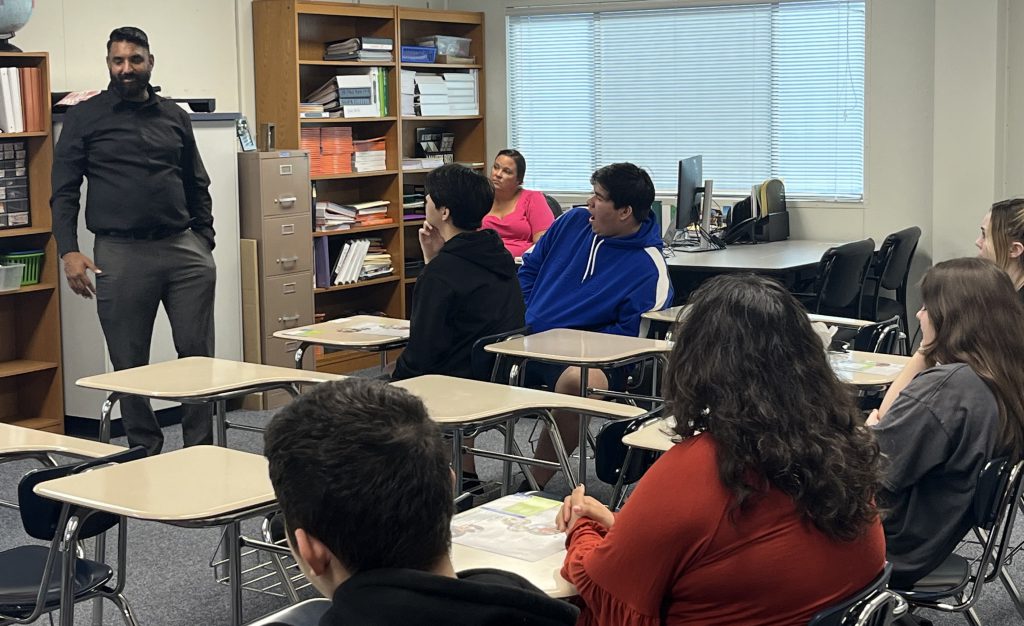
By definition and design, the independent study high school students at Denair Charter Academy do not have as much daily face-to-face interaction with each other or their teachers as at traditional campus settings. That flexibility doesn’t mean, however, that small groups of students can’t come together for important purposes.
Starting with this school year, those joint activities have included monthly career workshops arranged by first-year Principal Jamie Pecot and her staff.
In September, a local mental health clinician talked with students about that profession. There have been two workshops in October – the first featuring representatives from the Air Force and Army talking about military careers; the second with a man from the Institute of Technology in Modesto discussing trade schools. In November, DCA students will hear from an Emergency Medical Technician (EMT) as well as a firefighter. A session on welding is scheduled in January, with other topics to be determined.
The idea, Pecot explained, is to give students an idea about potential professions they may know little about.
“My goal is to expose students to career opportunities after high school that the students may not be aware of right now,” she said.
There are many reasons that DCA makes sense for its students. Some have not done well in traditional settings; others have family or work obligations that require them to complete their studies outside a typical schedule.
Regardless of how or why they arrived at DCA, Pecot believes it’s critical that her students have a chance to explore as many career options as possible. Though some DCA graduates go on to attend community colleges or even four-year universities, many others move more quickly into the workforce. That makes knowing about how to join the military, attend a trade school or find an employer who offers an apprenticeship even more practical.
Student Nicole Peterson was impressed by the military recruiters.
“They were open about how the programs work and what will come if you take the programs and what advantages and disadvantages there are,” she said.
Petersen also attended the Institute of Technology workshop and learned that “you don’t always need a degree for certain careers you want to have.”
Naheemy Ayon Garcia complimented the Institute of Technology presentation, saying it was “in student-friendly language.”
Juan Russell also thought the Institute of Technology workshop was “easy to understand” and liked how the training can help “students to get good jobs and good careers.”
Before becoming principal at DCA this year, Pecot taught at the school for nine years. She said the staff tried to share career-based information before, but it “fizzled out” for various reasons. Inviting outside presenters from the public and private sectors to the campus this year was an idea that appears to appeal to students.
Between seven and 12 teens have attended each workshop and Pecot expects the upcoming session with an EMT and firefighter to draw even more.
Already, one of the students who listened to the mental health clinician contacted the speaker to gather more information about what he does.
That’s the idea, Pecot said. Who knows which career path might resonate with a DCA student who otherwise might not have known about it? The potential job categories are chosen based on feedback from students.
“A staff member will pick a career that several students have shown interest in attending, then start researching how to find a professional in that area,” Pecot explained. “Sometimes, staff have contacts to those professions, but not always. The presenter may not know anyone on campus; they just may be an expert in their field.”
